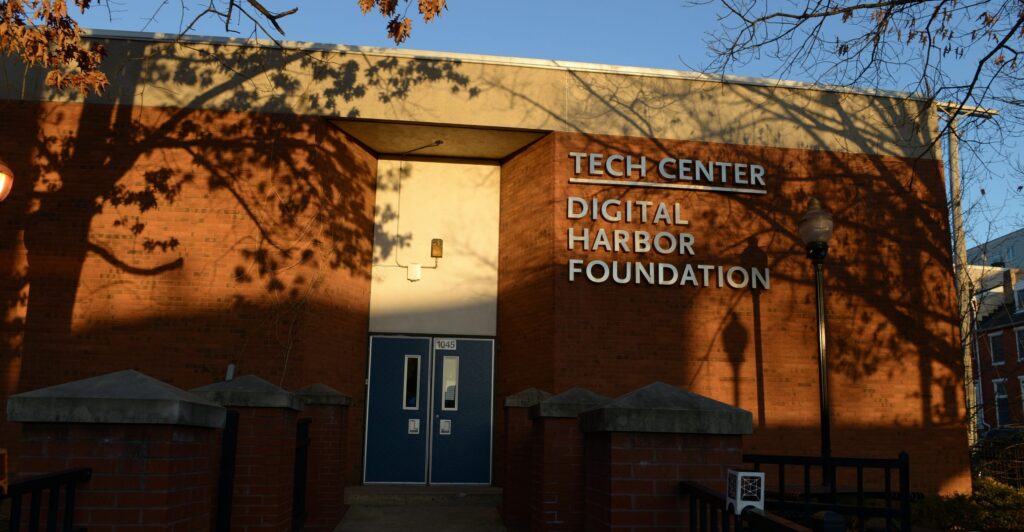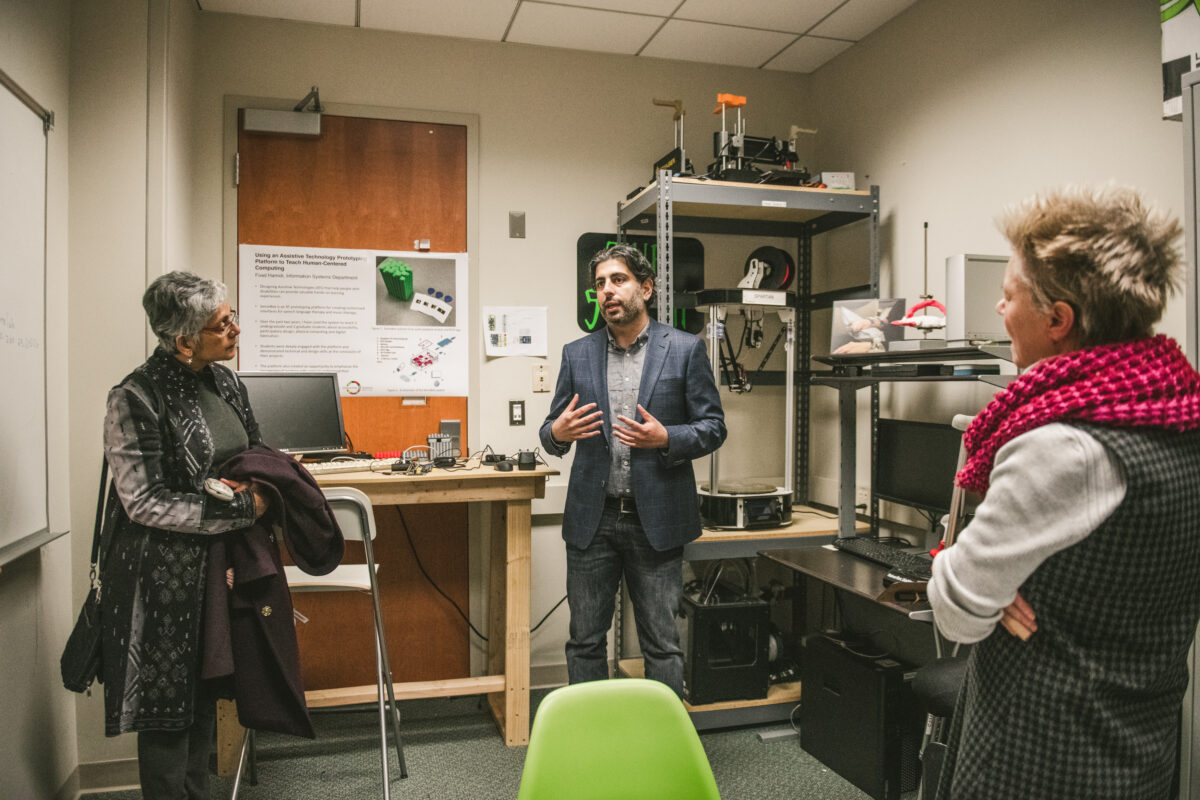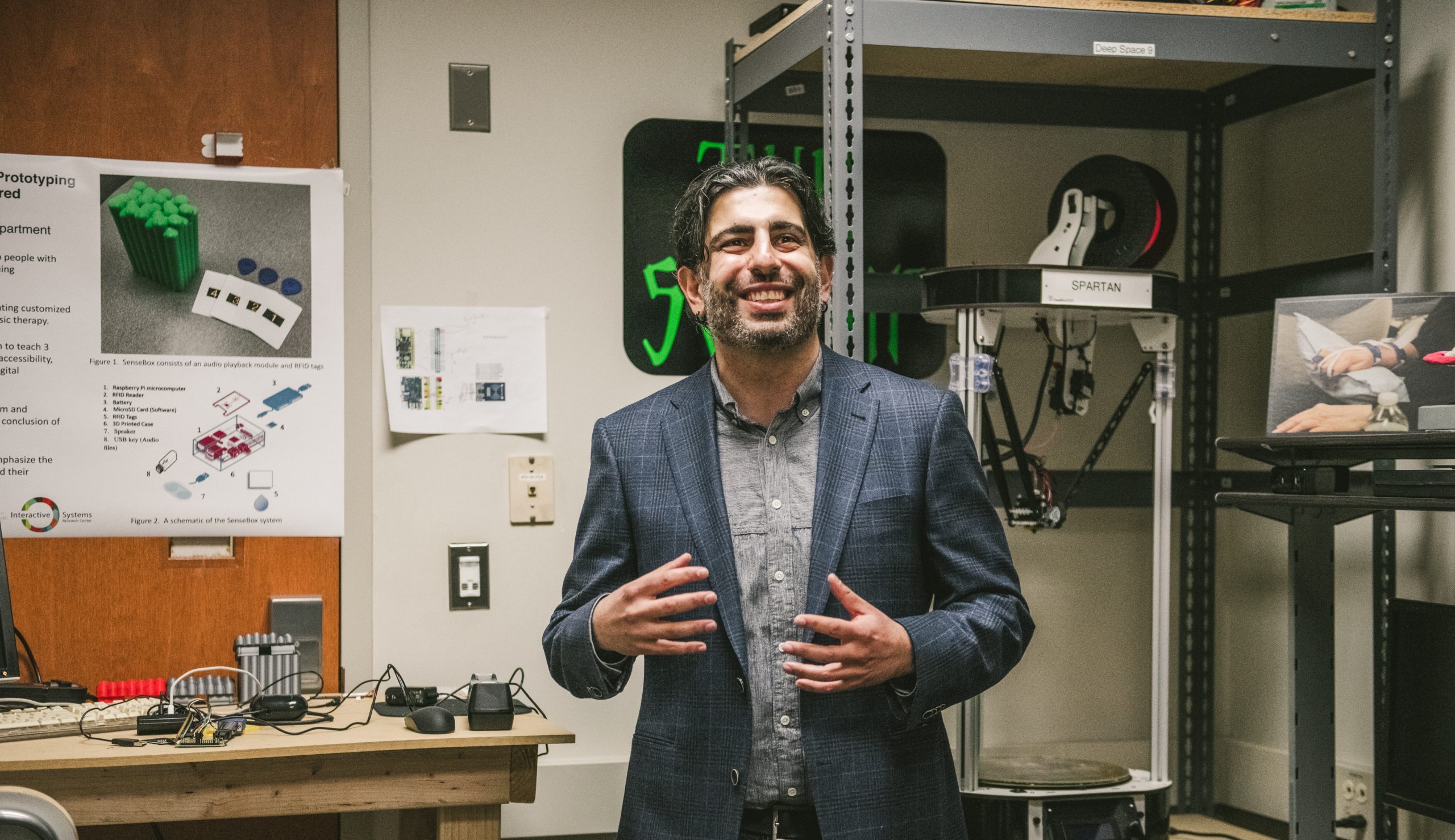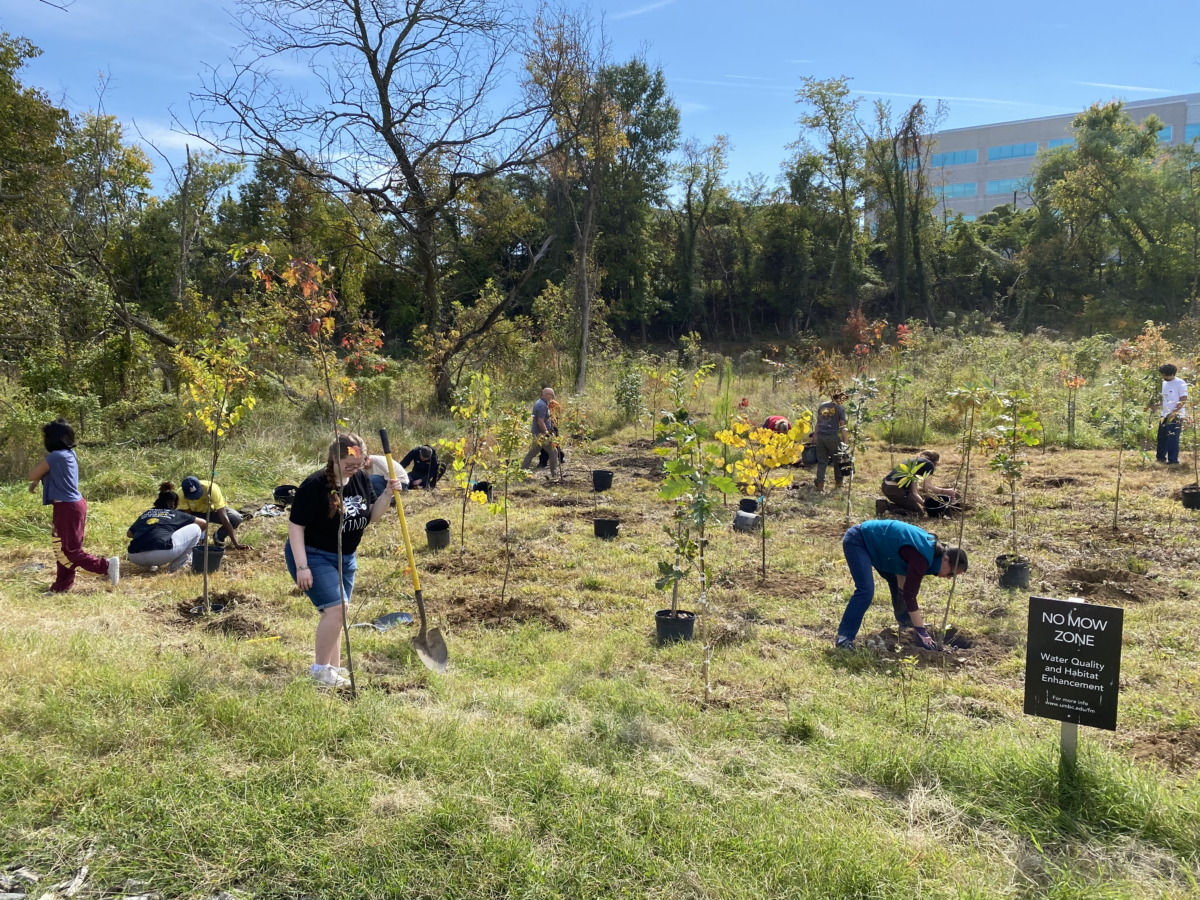During the COVID-19 pandemic, internet access has become more critical, with people relying on it to work, learn, and connect with family and friends. However, the internet is not equally accessible to all people. UMBC’s Foad Hamidi recently received a collaborative Rapid Response Research (RAPID) grant from the National Science Foundation (NSF) to increase high-speed wireless internet access to communities in Baltimore.
Not having access to the internet has heightened existing inequities during the pandemic, says Hamidi, assistant professor of information systems. “It impacts families in different ways, whether it’s related to education, employment, or social connections,” he explains.
Hamidi will collaborate with the Digital Harbor Foundation, Project Waves, and other community groups to increase the accessibility of wireless internet that is both free and secure.
Building and sustaining networks
The Digital Harbor Foundation (DHF) is a Baltimore-based tech center that enables youth to learn about technology through hands-on learning, including through a well-equipped makerspace. Project Waves is a non-profit organization that provides pay-what-you-can broadband internet to communities in need. Their work with Hamidi will focus on supporting residents who want to get internet access set up in their homes and to study the impact of having this access.

Hamidi and his collaborators will work with other groups to amplify free and secure wireless internet in accessible spaces, such as libraries and community centers. For some groups, this work will be new. For others, the grant will allow them to speed up work they’ve already been doing.
Importantly, Hamidi notes, the community organizations will help sustain these networks over time. “The pandemic has amplified the need for internet access, but it will continue after the crisis,” he says.
“The COVID-19 crisis is a complex and multifaceted phenomenon that amplifies the inequities already present in our societies,” explains Hamidi. “In this project, we are taking into account both the social and technical aspects of providing free and secure internet access to low-income communities. More broadly, we look forward to better understanding how participatory approaches to internet access can address issues of inequity arising from the digital divide in our cities.”
Increasing access to computing skills
Hamidi’s project is also part of a larger effort, based at UMBC, to expand access to basic computing skills among students in Baltimore City as well as nearby Montgomery County. This is the goal of Megean Garvin, director of research and assessment for the Maryland Center for Computing Education (MCCE).
The COVID-19 pandemic has pushed the issue of computing education to the fore, as more and more students and educators recognize the value of computing skills in this time of physical distancing. However, Garvin says, the teaching workforce needs professional development to not only use technology, but be able to create their own computer science curricula and classroom resources.
The MCCE, initially funded by Maryland in 2018, has worked to provide professional development in computing for teachers across the state and has begun to transform teacher preparation as well. By the 2021 – 2022 school year, all public high schools in Maryland will be required to offer a high quality computer science course, and elementary and middle schools will be expected to integrate computer science into their curricula. The MCCE is working to help teachers and schools reach that target and have confidence in the quality of their computer science offerings.

To ensure teachers can be successful in providing students with computing education, Garvin notes, it is essential to take into account the “digital divide,” particularly in Baltimore City. Even with the most advanced training and support, computing teachers can’t be effective if their students can’t access computing devices and, as Hamidi’s work highlights, the internet.
Computing education ecosystem
In response to this challenge, the MCCE and partners created the Baltimore City Computing Education Ecosystem Workgroup. This partnership includes the University System of Maryland, UMBC, University of Baltimore, Baltimore City Community College, Morgan State University, and Towson University, plus Baltimore City-based organizations such as the Digital Harbor Foundation and Code in the Schools. Their goal is to develop and deliver on strategies for a robust computing education for students from pre-kindergarten to high school, in the context of COVID-19 and remote learning.
In addition to the grant Hamidi has received to work in this area, Garvin has been awarded a two-year grant from the Spencer Foundation to study the Baltimore Urban Computing Education Ecosystem’s response to COVID-19.
The Engineering and Computing Education Program in UMBC’s College of Engineering and Information Technology has also developed a similar computing education partnership in Montgomery County. There, UMBC at the Universities at Shady Grove is working closely with Montgomery College and Montgomery County Public Schools to support a culture shift in computing education. As in Baltimore, they hope to provide technology access and learning opportunities in computing for all students.
“Access to reliable and affordable internet connectivity has become a new necessity in our dynamic and information-rich century,” says Hamidi. “We need to investigate conditions necessary for communities to have an active role in shaping, creating and taking ownership of the technologies they need.”
Banner image: Foad Hamidi. Photo by Britney Clause.
Tags: COEIT, COVIDresearch, IS




